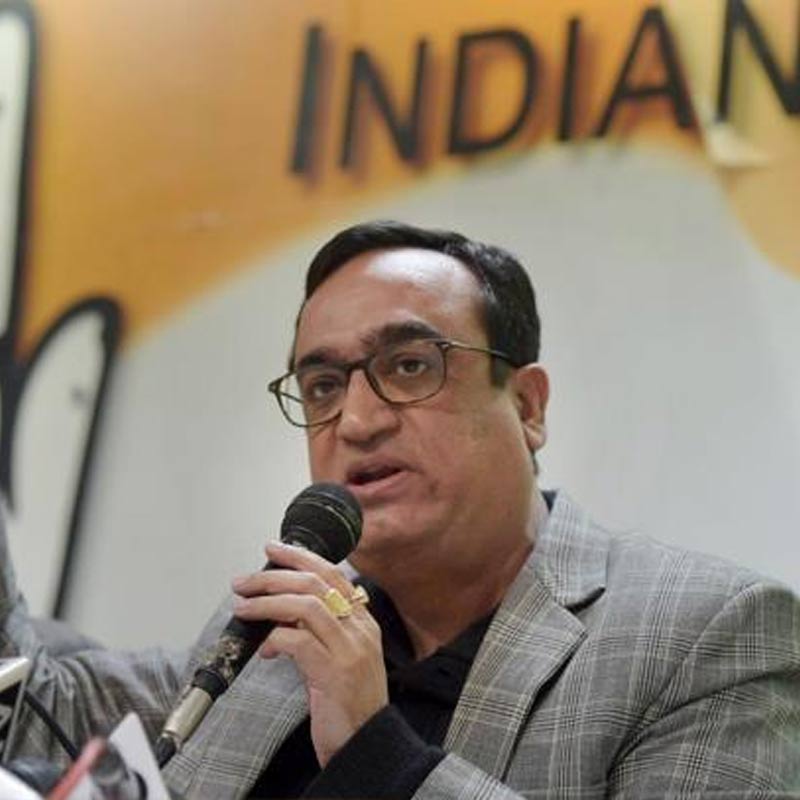Indian Olympic Association onboards Borosil as associate sponsor
Mumbai: Consumer ware brand Borosil Ltd on Tuesday announced that it has renewed and expanded its sponsorship with Th
NEW DELHI: An independent Indian Court of Arbitration for Sports will be set up by the Indian Olympic Association apart from an Appellate Sports Tribunal to streamline the growth of sports in the country, according to Sports Minister Ajay Maken who said he was keen to remove the perception that the government wanted to control the sports bodies.
The provision relating to Sports Ombudsman and the National Sports Development Council in the proposed National Sports Development Bill are being removed, and their work will be looked after by the Court of Arbitration, the Appellate Sports Tribunal and the National Sports Federation.
The Minister said efforts had been made to streamline the Bill while retaining its transparency, good governance and de-control from government.
The Bill now bars the Minister in charge of the Department of Sports or any other official of the Department in the Central Government or an officer of the Sports Authority of India to contest election in a National Olympic Committee or the National Sports Federations for a period of five years.
The provision for discretion of the Government to recognize National Olympic Committee and National Sports Federation has been eliminated. In the event the Central Government feels that these criteria have not been met or there is any other discrepancy/dispute, the Central Government can refer the matter to the independent Appellate Sports Tribunal.
The independence of the Appellate Sports Tribunal has sought to be ensured in totality. Therefore the power to appoint the Chairperson and other members of the Appellate Sports Tribunal has been granted to an independent Selection Committee which is to be chaired by the Chief
Justice of India or his nominee and also has a representation from the National Olympic Committee. The discretion to remove a member of the Appellate Sports Tribunal now vests with the Chief Justice of India who would be conducting a enquiry according to a specific procedure laid down by him.
The eligibility criteria for the National Sports Federation to get recognition have been reduced. The criteria stating that the National Sports Federation should have been in existence for three years has been deleted. This has been done in order to promote new sports which are developing/being actively played in India to be recognized by the Government.
A duty has been enjoined upon the coaches, guardians and other support personnel to prevent unethical practices in sports like doping, fraud of age and sexual harassment. The Central Government has also undertaken a duty to make provisions for continuing education of the athletes, healthcare and pension for the athletes.
A provision of deemed registration has also been inserted in the Bill in order to avoid duplicity of work. A certificate of registration once issued would continue to be in force until the time such a registration is suspended or cancelled by the Appellate Sports Tribunal.
Transparency has been sought to be inculcated by the applicability of the provisions of the Right to Information Act to the sports federations, an exclusion clause has also been provided to protect certain information which are peculiar to sports, which may be used by competitors against athletes. These include queries pertaining to: selection, appointment or exclusion of athlete, coach, trainer or physiotherapist when it for participation in an athletic competition; quality of performance of an athlete in an athletic competition; medical health and fitness of an athlete; whereabouts of an athlete; information which is confidential under the NADA code.
The sport sector worldwide is structured in a very peculiar way, where the Court of Arbitration for Sports based in Lausanne has an exclusive jurisdiction to decide certain disputes. In order to retain this worldwide structure, a provision has been inserted in the Bill excluding the jurisdiction of the Appellate Sports Tribunal in these cases.
Maken stated that it is the endeavour of the Government to make India a prominent player on the global sporting arena and this can only be done when transparency, unbiased decisions, democratic elections and joint development of sports is inculcated.
The Bill seeks to align the sports movement in a structured way that the Central Government, Sports Authority of India, National Olympic Committee and the National Sports Federation can work together for the overall promotion and development of sports. The Bill recognizes that at the core of sports development are the athletes and effort is being made by the Bill to give them a say in running the sports as well as secure better welfare measures for them.

 switch
switch
 switch
switch